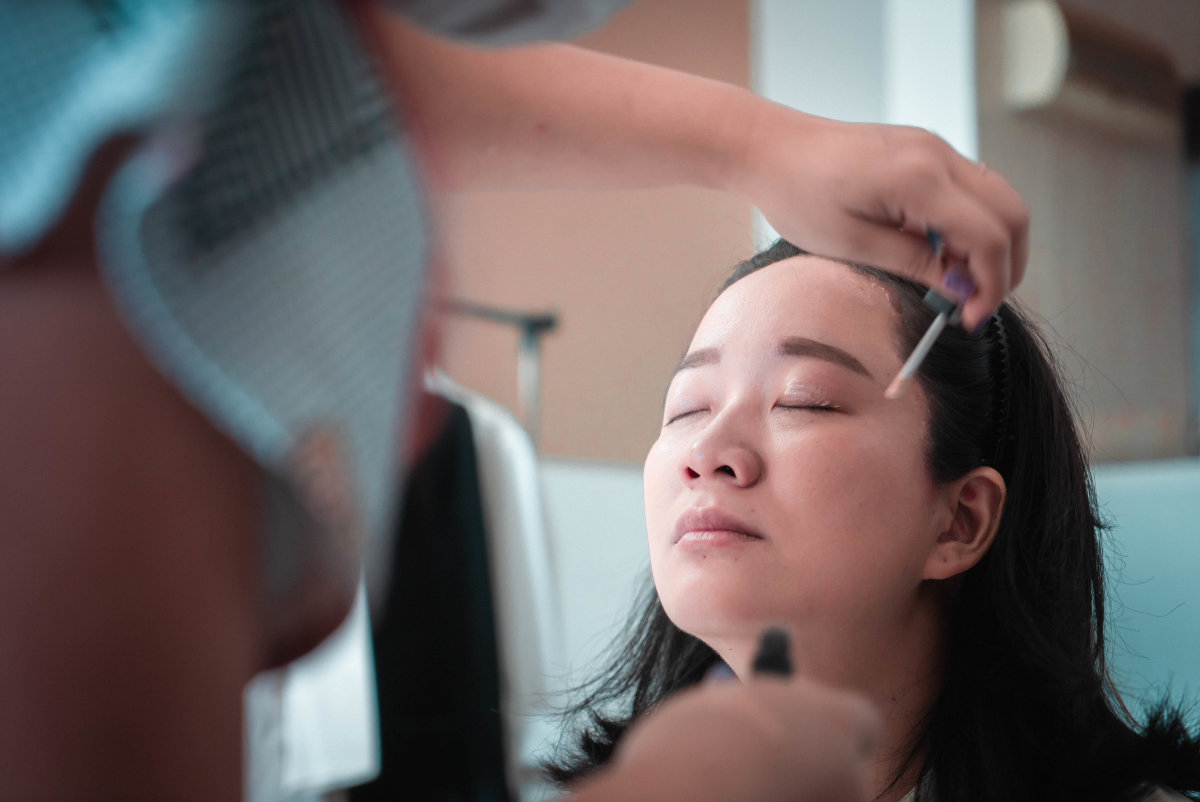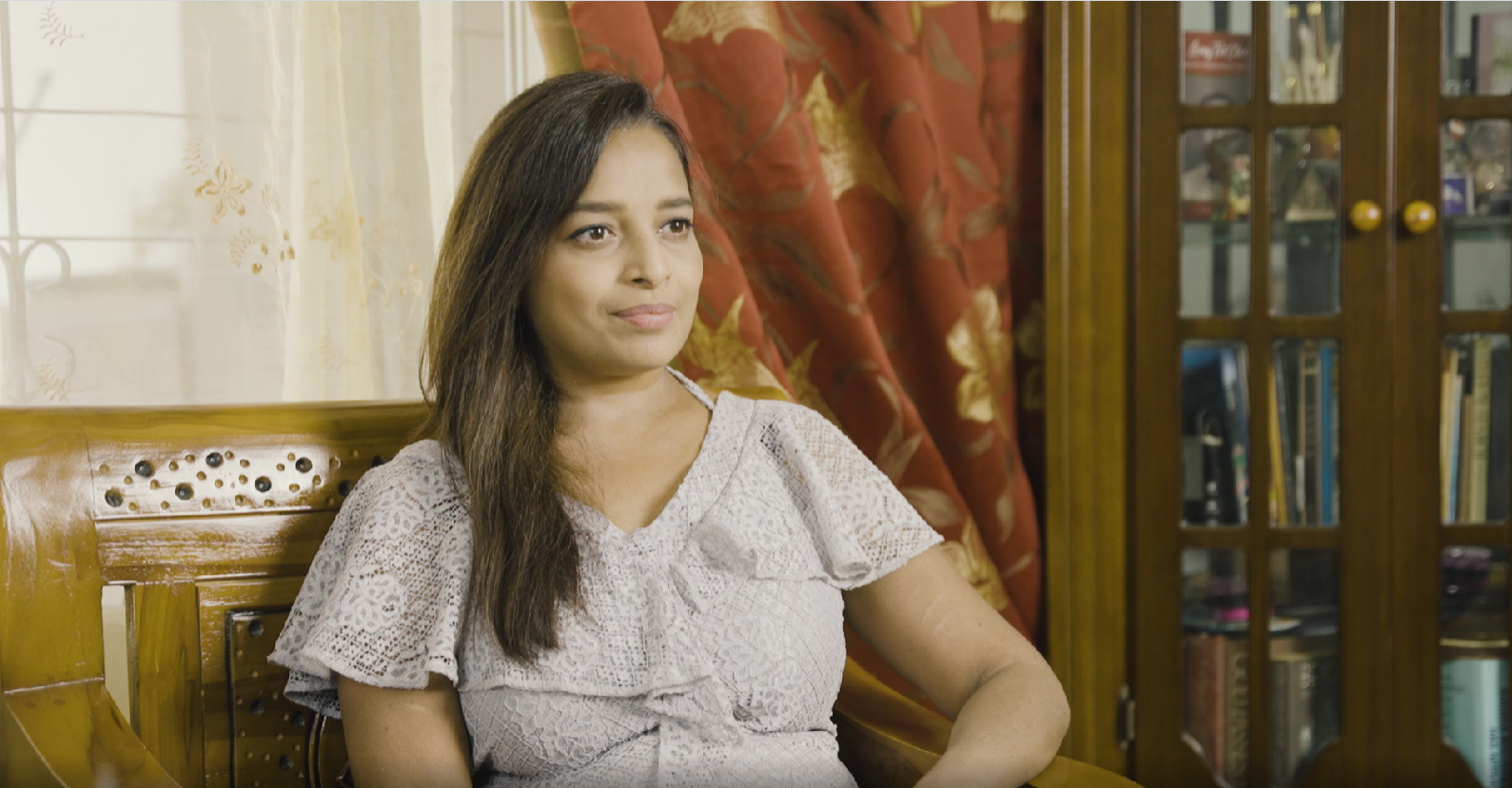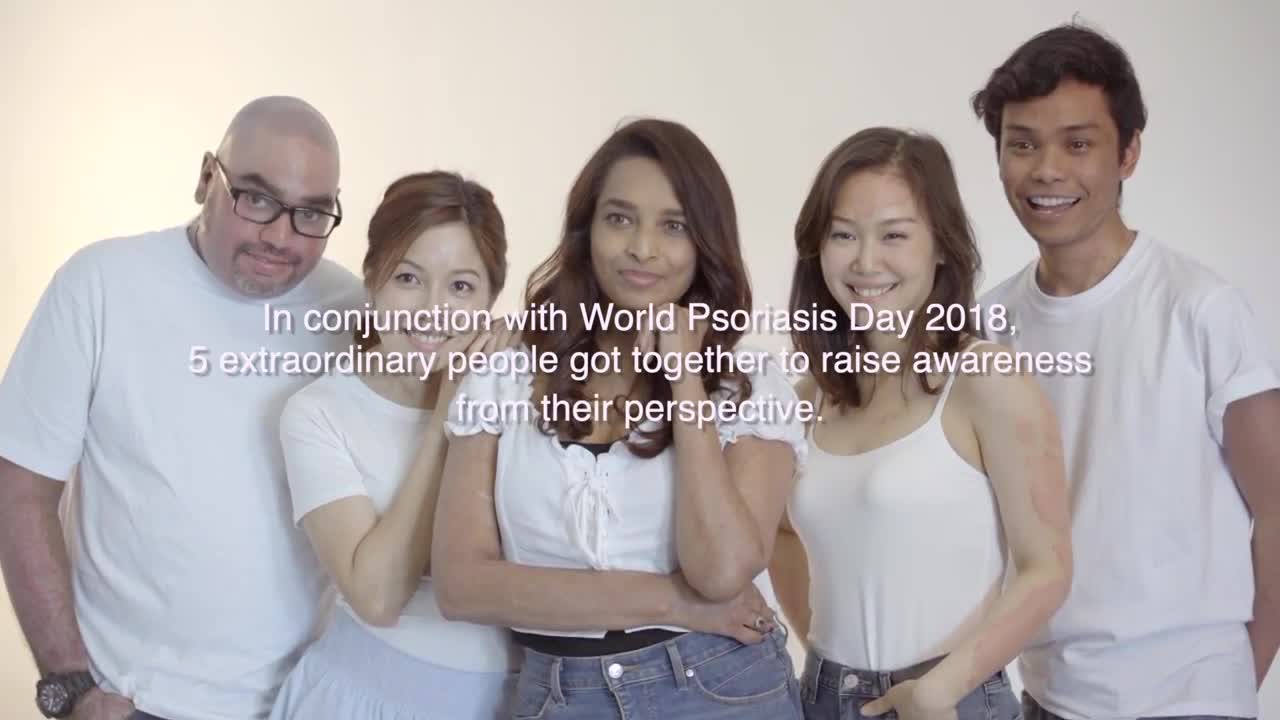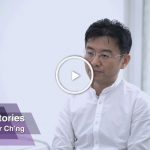
Photo by Robin Wong, @shutter.therapy
styled by Janet Lee, @janetleemusic
I have always had sensitive and problematic skin ever since I was a kid. It wasn’t particularly alarming, but I always found myself having the itch to scratch, leaving scars behind. If I injured myself, it would take a long time for my wounds to heal. It was tough, and I learnt that scratching is a big no-no.
The first time I heard about psoriasis was during my late teens. For me, it started out with a small red bump on my scalp, with layers of skin built around the little wound. Then it multiplied to more spots, covering the scalp. That was when I went to the doctor and got diagnosed.
Throughout the years, there were minor developments – I would flake more on the scalp and much as it was perceived, it was akin to attending to a dandruff problem and I had it under control. But a few years ago, my skin suddenly went berserk. The spots kept appearing and the patches just wouldn’t stop growing. It quickly spread to my back, hips and limbs.
I struggled a lot with my skin, mostly because I’m a performer. I’m either on stage, rehearsing behind the scenes or in front of a camera. Appearance is key in this industry.
It can get very awkward when my skin starts having one of its shedding episodes. I never know what to do with the trail of dead skin that I leave behind. Do I explain my condition to people? Do I offer to clean it up? Is anyone going to judge me for having poor hygiene? There are just so many questions.
I am lucky that I am surrounded by understanding people like my close friends and family. They have been extremely kind and helpful. They always remind me not to scratch, and even help me brush off dead skin that fall on my clothes and around me. Little actions like these speak to me and I am grateful for them.
I always try to have an open conversation with everyone I encounter at work, and most of the time the experience has been positive. But once in a while, I do come across people who aren’t very accepting of my skin condition. I guess that is just part of the experience, when it comes to abnormality versus society.
Another concern of mine when it comes to work is having to wear makeup all the time. If I’m performing on stage with my band, I don’t apply any makeup around my hairline. I use my hair to cover up the visible red patches, be it a fringe or a side parting.
But if I’m playing a specific character or if I’m at a shoot, I have to get that covered or it will be very noticeable because they will take closeup shots of my face. Normally, I will speak to the director about my skin condition. When it’s really bad, we usually come up with alternatives like changing the script or looking at different angles to shoot from. I like to say that my skin calls the shots.

Photo by by Mimi Thian, @mimithian
I have to navigate my life according to my skin condition, and that can be mentally exhausting. It’s especially discouraging because there is no cure for psoriasis. I’ve seen multiple skin doctors, tried all types of supplements and shampoos but somehow nothing seems to work. Every time I try a new treatment for my scalp, it works for the first week. Then my skin gets used to the product, and it starts flaking again. It feels like a never-ending cycle for me.
During the period first MCO (Movement Control Order) back in March, I had some time to reevaluate my lifestyle and food choices. I started to examine what triggers a reaction. I noticed that when I consume certain foods and drinks like instant ramen and beer, my skin flares up the next day. So, I stayed away from processed foods, ate more vegetables and less meat. When I did this, I noticed that my skin became tamer. Sounds simple but it definitely made a difference for me. Cooking at home and controlling what ingredients goes into my meals has helped as well.
This year has really made me rethink the relationship I have with my body and psoriasis. I’m focusing on my wellbeing and learning how to take better care of myself. Psoriasis is a means to an end and not an end in itself. I know that this condition can affect some people very badly, and I’m so grateful that I have mine under control. For as long as I live, I will just have to keep trying and continue to manage this condition.
CTX.PsO.03/ MY2011038499
Lynn






